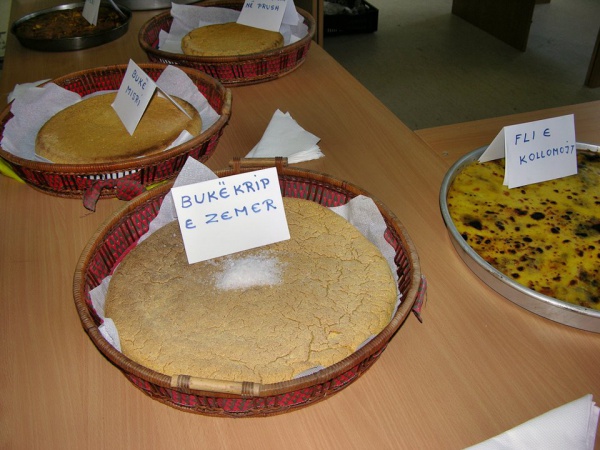Facts About Albanian cuisine
Albanian cuisine is a delightful blend of Mediterranean flavors, showcasing the Mediterranean diet with a heavy emphasis on olive oil, fruits, vegetables, and fish. Albania's rich culinary traditions are shaped by the country's natural environment, which facilitates the cultivation of a variety of herbs, vegetables, and fruits. Hospitality is deeply ingrained in Albanian culture, and sharing food is a central part of welcoming guests, a tradition rooted in the medieval code of honor known as besa.
Albanian cuisine can be divided into three main regional styles: northern, central, and southern. Each region offers its unique flavors, influenced by whether the area is rural, coastal, or mountainous. Common ingredients include garlic, onions, potatoes, carrots, fish, and seafood, with olive oil serving as a cornerstone of Albanian cooking due to the country's abundant olive production.
Albania's strategic location near the Mediterranean Sea profoundly influences its food, featuring classic Mediterranean ingredients like olives, wheat, dairy products, and fish. The country's varied microclimates also support the cultivation of a wide range of fruits and vegetables. A typical Albanian breakfast might include bread, butter, cheese, and yogurt, while lunch is the main meal of the day, often featuring gjellë, a slow-cooked meat dish with vegetables.
The cuisine is rich with a variety of ingredients such as fruits, vegetables, herbs, and spices. Tea and coffee are popular beverages, and there's a vibrant café culture in the cities. Traditional Albanian drinks include dhallë (a yogurt-based drink), boza (a malt drink), raki (a national spirit), and wine, with a long history of wine production and consumption in the country.
Albanian cuisine also offers a mouthwatering selection of pastries and desserts, including baklava, petulla (fried dough), pandispanjë (a sponge cake), and various cookies and jams. Appetizers and salads are common, often featuring bread, vegetables, and meats. Meat, poultry, and fish are central to many Albanian dishes, with regional variations in preparation.
Albanian pies are particularly distinctive, with popular types including pite (a filo pastry pie), flia (a layered pancake), and bakllasarëm (a layered pie). The health benefits of Albanian cuisine are largely due to its adherence to the Mediterranean diet, focusing on fresh ingredients, vegetables, and olive oil. This diet contributes to a high life expectancy in Albania despite economic challenges.

 Greece
Greece